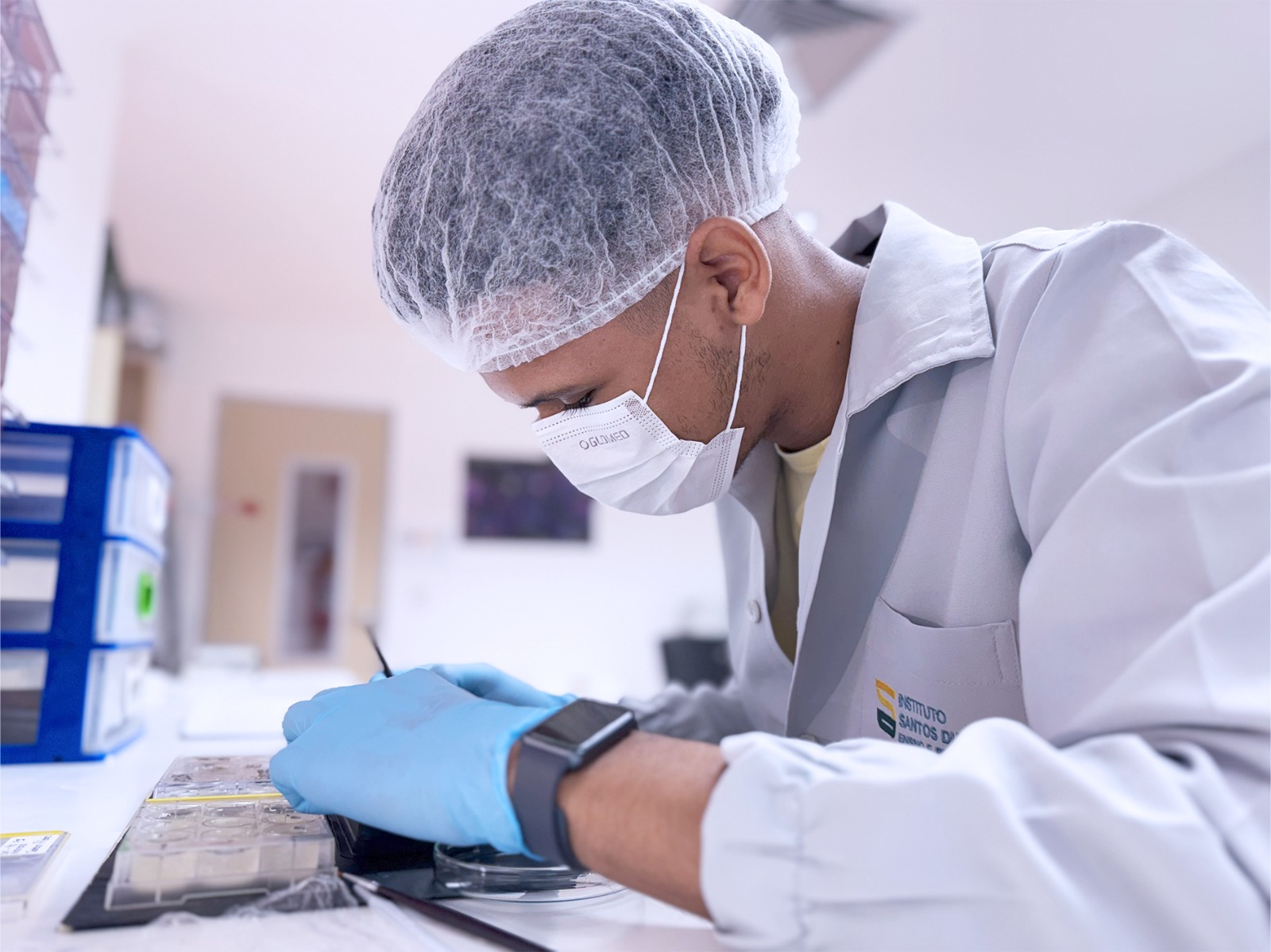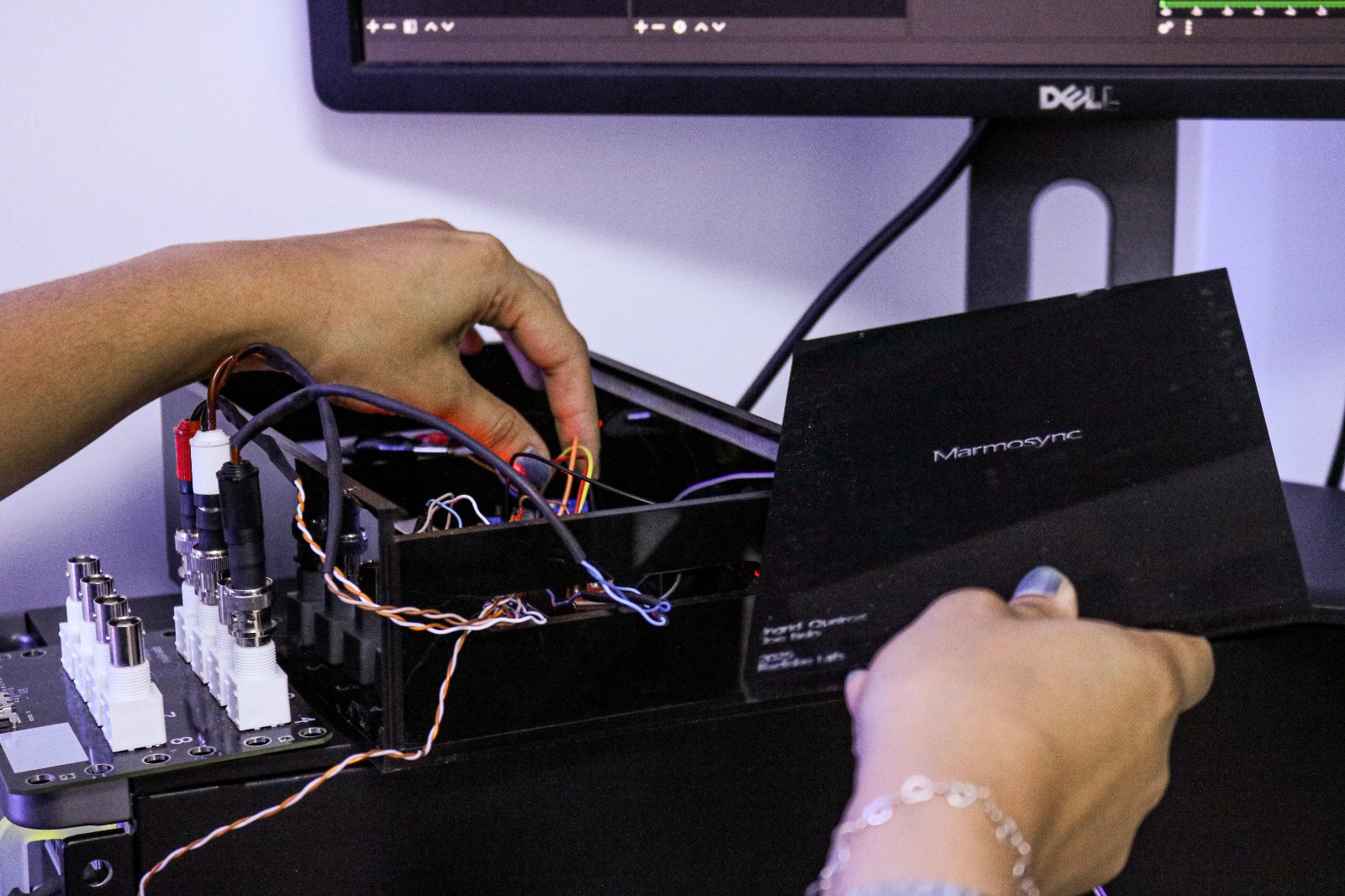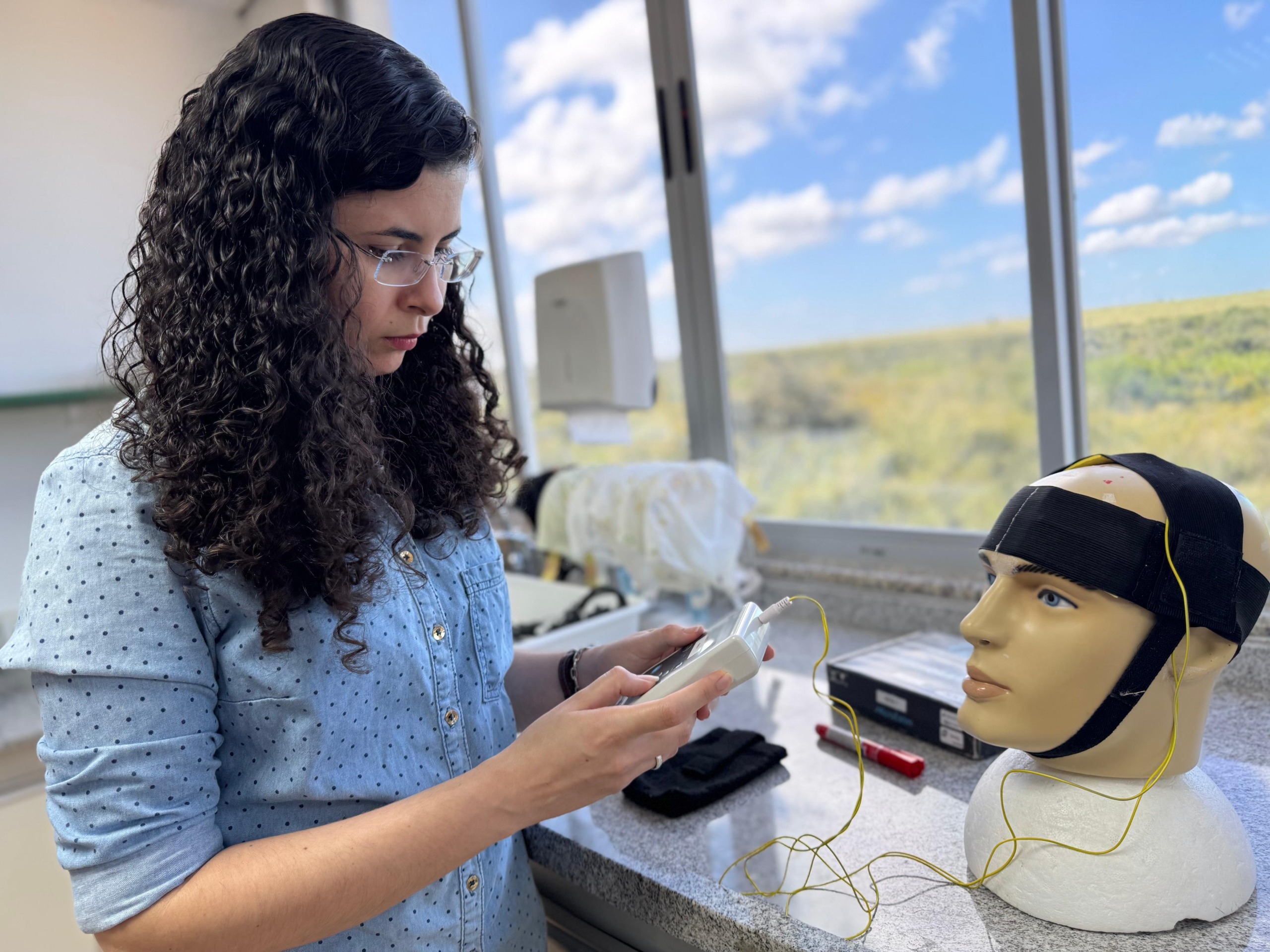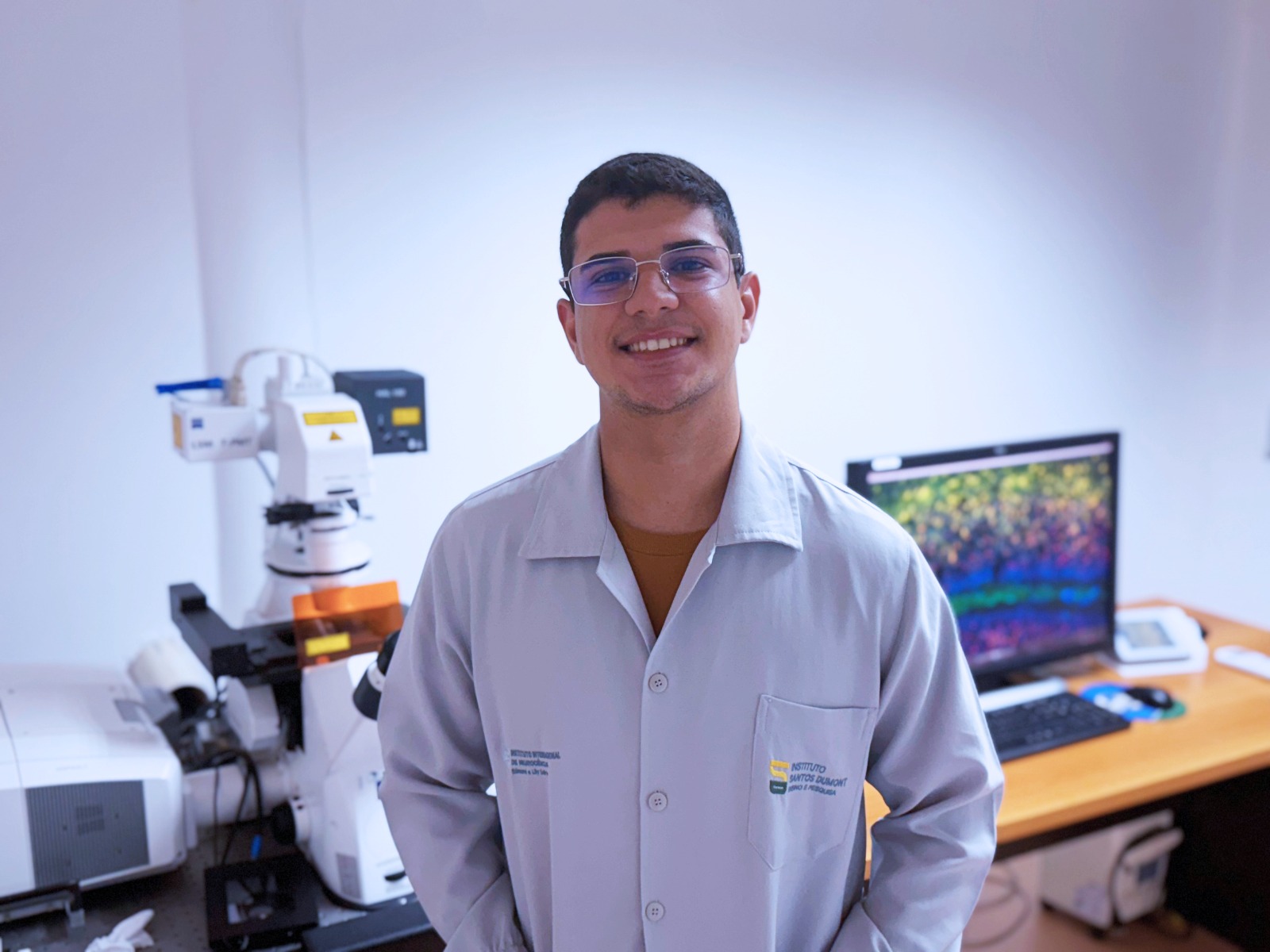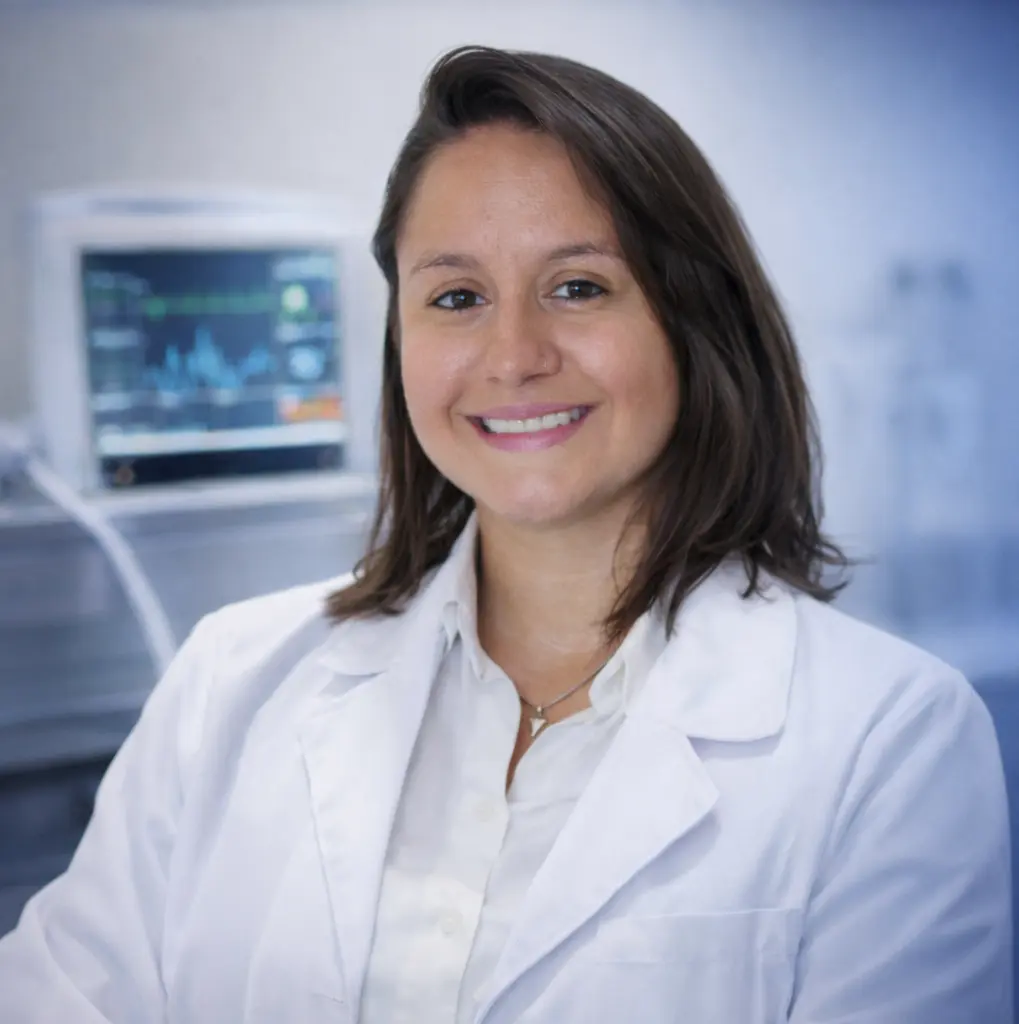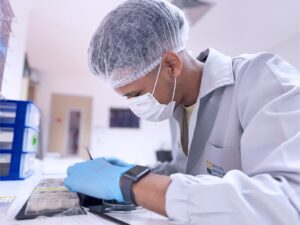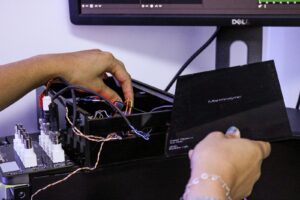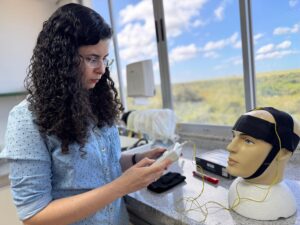Promoted annually by the Santos Dumont Institute (ISD), in Macaíba (RN), the Neuroengineering Symposium reaches its ninth edition with a diverse program, which brings renowned researchers in the areas of neuroscience and neuroengineering for lectures, theoretical-practical tutorials and presentations. scientific work. The event, which takes place between October 16th and 19th in a hybrid format, is with registrations open on the Congresse.me platform.
The opening lecture of the Symposium will be given by professor Tiago Henrique Falk, who works at the Institut National de la Recherche Scientifique, located in Montreal, Canada. He will talk about the challenges and opportunities for innovations in signal processing and machine learning and emerging applications with mobile Brain-Machine Interfaces.
The event will also feature lectures by Vitor Lopes dos Santos, from the University of Oxford; Thiago Luiz Russo, from the Federal University of São Carlos (UFSCAR); Janine Rossato, Elaine Gavioli and Ana Raquel Lindquist, from the Federal University of Rio Grande do Norte (UFRN); Maria Eduarda Franklin, CEO of Orby; Sridhar Krishnan, from Metropolitan University of Toronto and Elizabeth Ribeiro, from the Mara Gabrilli Institute. The complete schedule, with the times of each lecture, is available on the event platform.
The topics covered will bring perspectives ranging from basic research with animal models to the analysis of biological signals, including topics such as rehabilitation, assistive technologies, memory and robotic interactions. Coordinator of the event, ISD research professor Denis Delisle, highlights that the diversity of the programming is one of the highlights of the event, in line with the perspective of translational research carried out at ISD. “We have researchers on the program who are references in their respective areas, contributing to an interdisciplinary and broad vision of research, which is one of the principles of neuroengineering”, he states.
Tutorials
In addition to the lectures, the event will feature theoretical-practical tutorials, with limited places, which will cover topics such as: use of Brain-Machine Interface for assistance and motor rehabilitation; case studies in human movement analysis laboratories; neuromodulation techniques for studying animal behavior; use of the Qualisys system from science to clinical practice; electrophysiology in animals; gait training modalities in rehabilitation; basic development of serious games for rehabilitation; neuromodulation using tDCS in humans and tissue processing and microscopy.
Registrations
Registration must be made by Symposium page on the Congresse.me website. The values for early registrations were extended until September 17th, in the amount of: R$ 50 for students from Latin America; R$ 100 for professionals in Latin America; U$ 50 for students from Europe, North America, Asia and Oceania and U$ 100 for professionals from Europe, North America, Asia and Oceania.
The Santos Dumont Institute will provide a bus for people who want to participate in the event in person. The request must be made on the event page, after registration, within the participants tab.
ABOUT ISD
The Santos Dumont Institute is a Social Organization linked to the Ministry of Education (MEC) and includes the Edmond and Lily Safra International Neuroscience Institute and the Anita Garibaldi Health Education and Research Center, both in Macaíba. ISD's mission is to promote education for life, forming citizens through integrated teaching, research and extension actions, in addition to contributing to a fairer and more humane transformation of Brazilian social reality.




